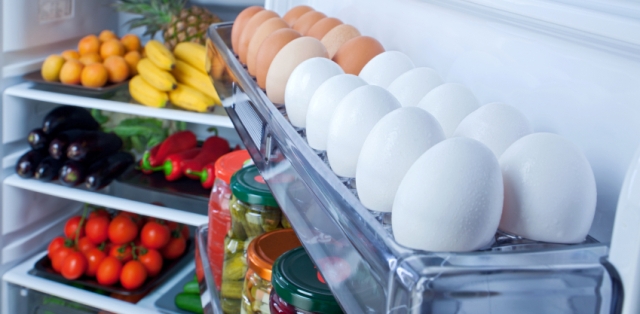This is one question that was posed by someone to her friend while trying to buy egg in a mall last weekend. I passed by slowly and listened to their conversation. She wanted to buy two crates of eggs and keep it but her friends opined that some would definitely get spoilt before she is able to consume them. The woman then asked her friend, “what if I keep it inside refrigerator?” Then they both looked at each other with the face that says, “that should work just fine”.
For real, let’s ask ourselves these questions. Do we need to store eggs in the refrigerator or room temperature? How does refrigeration help the eggs we keep in there? Is it just a waste of time and space in the refrigerator? Let’s do the fact-finding job together.
What refrigeration does to eggs stored in it
Dr. Rosamund Baird and Dr. Janet Corry, two experts at Bristol University’s School of Veterinary Science say that storing a contaminated egg at room temperature will only allow the bacteria to multiply. So, storing the eggs in a refrigerator will slow down the multiplication of bacteria. But how do we know if egg is contaminated?

Most of the times, consumers like us cannot tell until we fall ill from consuming the eggs or the bacteria have caused deterioration to the point of spoilage. In countries like the Britain for example, there are laws that require that all egg hens be vaccinated for Salmonella. The Salmonella National Control Programme (NCP) prevents egg operators and producers from marketing eggs infected with the bacteria or that have an “unknown health status”.
This is not so in countries like the United States and many developing nations where immunization of hens against Salmonella is voluntary. No law requires that farmers should do it but the U.S. Food and Drug Administration (FDA) recommends storing eggs in the refrigerator.
According to the American Egg Board, to minimize the risk of contamination and to extend shelf life, eggs should be stored in the case or carton in a refrigerator. If done so, they should last up to four to five weeks without a significant loss of quality
Since refrigerators keep our eggs from contamination, slows down the multiplication of bacteria in already contaminated eggs and prevent illness, why don’t we just keep them in the refrigerator if we have the means. Did I mention that it extends the shell-life of eggs? Yes, it does and that saves you money.
So to answer the major question posed above, it is safer to store our eggs in the refrigerator than the shelf.

I thought u were actually gonna say it is wrong but u didn’t and dat makes reading dis totally pointless cos every normal person would always store eggs if d refrigerator if they have one
@ose,at least,some people who didn’t know before now that storing eggs outside refrigerator would reduce its nutrients,now have the knowledge.ok!